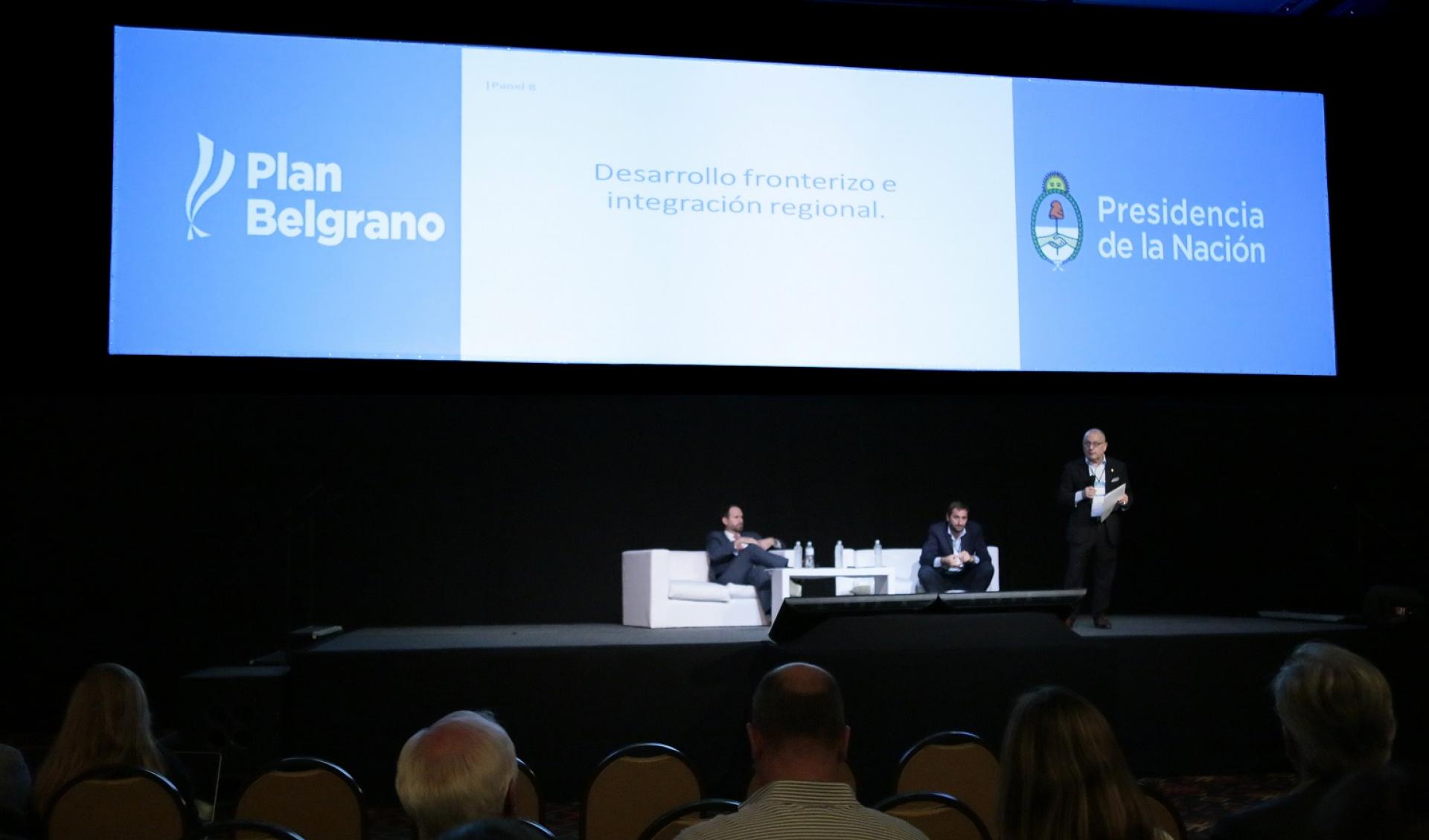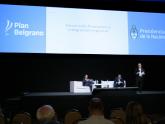On Tuesday, the Argentine Foreign Minister and the other Ministers of Cabinet paid a historical visit to Salta province in order to participate in the first regional meeting of the Belgrano Plan in Argentina's Northern region
"We must spare no effort to modernize and join the most dynamic trade flows in goods, services, investment and technology," Foreign Minister Jorge Faurie stated today in Salta, where he participated alongside the other Argentine Ministers in the First Regional Meeting of the Belgrano Plan in the Argentine Northwest region held at the Conference Centre in Limache, Salta.
During his speech, the Argentine Foreign Minister stated that the Government is working so that "foreign policy in regional integration leads to concrete and tangible results that have an impact on the daily life of the Argentine people" and underscored that "one of the tools to reach this goal is a 'smart insertion into the world,' which is essential for securing long-term growth, including the people that are most in need and creating quality employment for the Argentine people."
The Meeting was opened in the morning by its host, the Governor of Salta, Juan Manuel Urtubey; the Chief of Cabinet of Ministers, Marcos Peña, and the Head of the Belgrano Plan, Carlos Vignolo. Different panel discussions were held during the meeting by Ministers and high-level officials of the Argentine Government, as well as by representatives of the private sector, including discussions on "Reforms for investment and Argentine employment growth"; "Fostering sustainable development in the region"; "Boosting production in the Northern region" and "Tourism as a driver of development in the Argentine Northern region," among others.
The Argentine Foreign Minister spoke this afternoon at the panel discussion on "Development in border areas and regional integration," where he recognized that "we owe a debt to the region regarding infrastructure" and stated that infrastructure is "a key factor in growth and productivity: We must put our efforts and resources into expanding and building new bridges and roads, ports and airports, railways and energy generators, which will enable us to transport our products and take them further."
"Without physical connectivity, there is no real integration," the Foreign Minister highlighted and underscored the regional importance of the progress made on the Mercosur-Pacific Alliance dialogue, with a view to also achieving bi-oceanic integration, which will substantially boost Argentine exports.
Within the framework of the Meeting, which represented a historical visit by the Argentine Cabinet of Ministers to Salta province, Faurie explained that the task ahead "is not an easy one," since "our country has one of the world's ten longest borders," which includes "border crossings at an altitude of 4,800 metres, and others through tunnels, bridges and plains."
"Boosting investment in infrastructure also leads to greater participation of the private sector. This will enable us to reduce costs, channel savings and thus carry out more works that will create thousands of jobs," he stated.
After pointing out that "Argentina has trade agreements in place covering only 10% of global GDP," Faurie remarked that "we are strengthening the negotiation of trade agreements in order to enter the global economy and increase our participation in international trade and investment flows."
"But we want to be ready for that: insertion into the global economy also means competition, and a major part of the economy's productivity necessarily depends on infrastructure," he pointed out.
Press release No. 062/18
Press Office: 4819-7375 / 8296 / 7388
@CancilleriaARG


